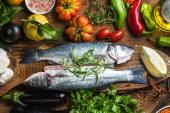Vegetarian Diets May Curb Cardiometabolic Risk: Meta-analysis
The data suggest modest drops in LDL and body weight, and better glucose control, but not all vegetarian diets are equal.

For people with cardiovascular disease or at high risk of developing it, a vegetarian diet may be a way to address common risk factors, according to a meta-analysis.
The combined look at 20 randomized clinical trials, published online recently in JAMA Network Open, found reductions in LDL cholesterol, HbA1c, and body weight. What constituted a vegetarian diet varied widely: some of the diets were vegan, some aimed to be very low fat, and some encouraged foods with low glycemic index, though nearly all emphasized fruits, vegetables, and whole grains.
“Different forms of vegetarian diets, which exclude meat and sometimes also eggs and dairy, are becoming increasingly popular because of their health and environmental benefits,” say Tian Wang, APD, RD (University of Sydney, Australia), and colleagues.
What these diets offer to patients who have or at high risk for CVD isn’t yet clear. But identifying practical interventions to improve cardiometabolic profiles beyond what can be done with standard therapy could aid in prevention, they suggest.
Maya K. Vadiveloo, PhD, RD (University of Rhode Island, Kingston), told TCTMD the meta-analysis provides new evidence supporting the idea that increased intake of plant-based foods can positively impact cardiometabolic risk factors.
“However, I say that with the caveat that I don't believe this suggests all forms of vegetarianism are cardioprotective. Vegetarian diets that are high in diet quality and emphasize fruits, vegetables, legumes, whole grains, nuts and seeds, [and] heart-healthy oils to achieve a vegetarian pattern seem to be driving the cardioprotective effects,” she said in an email.
The American Heart Association’s 2021 dietary guidance and its subsequent 2023 scientific statement on popular diets, both of which Vadiveloo helped develop, “suggest that it is still possible to consume a cardioprotective dietary pattern that includes some animal products like fish and lean meat as long as the diet is abundant” in plant-based, less-processed foods, she added.
Vadiveloo praised the current paper for emphasizing that a vegetarian diet isn’t a “magic bullet,” since the potential benefits hinge on what it contains.
No Change in Blood Pressure
For their study, Wang and colleagues identified 20 trials with a total of 1,878 participants testing a vegetarian diet in adults with or at high risk of cardiovascular disease. Nine of the studies included people with at least two CVD risk factors, seven related to diabetes, and four focused on CVD.
On average, following a vegetarian diet for 6 months was linked to a 6.6-mg/dL decrease in LDL cholesterol, a 0.24% decrease in HbA1c, and a 3.4-kg decrease in body weight. There was no significant reduction seen in systolic BP.
For LDL cholesterol, the reduction was greatest in patients at high risk of CVD (-9.1 mg/dL) when compared with those who had type 2 diabetes or existing CVD. For HbA1c, the greatest reduction was seen in patients with diabetes (-0.36%). And for body weight, the greatest reduction was seen in people at high risk of CVD (-3.6 kg).
The GRADE tool, which captures the overall certainty of evidence, characterized it as moderate quality for both LDL cholesterol and HbA1c and low quality for body weight and systolic BP.
Overall, the study authors say, “these results suggest that consuming a vegetarian diet may modestly but significantly improve cardiometabolic outcomes beyond standard pharmacological therapy in individuals at high risk of cardiovascular diseases, highlighting the potential protective and synergistic effects of vegetarian diets for the primary prevention of CVD.”
Driving home the point that not all vegetarian diets are equally healthy, they point out that more than one-third of the studies in the meta-analysis did not emphasize consumption of minimally processed, plant-based whole foods. “Vegetarian diets, particularly those practiced for ethical reasons or focused on convenience, may contain high levels of so-called empty calories, refined carbohydrates, hydrogenated oils, high-fructose corn syrup, sucrose or artificial sweeteners, and salt, Wang et al note.
This could explain why the impacts here were so modest, the researchers add, calling for well-designed trials in patients with CVD to test high-quality vegetarian diets in combination with optimal medical therapy.
When counseling patients, cardiologists can recommend a general pattern while allowing it to be adapted to individual preferences, Vadiveloo advised.
For some, “it may be easier initially to focus on eliminating animal-based foods and replacing them with fruits, vegetables, legumes, whole grains, nuts and seeds, heart-healthy oils, and low-fat dairy if desired. For others, having less restriction and emphasizing those same food groups while also allowing some animal-sourced foods may make it easier to adhere to a heart-healthy pattern,” she said.
More research needs to be done, she added, to understand whether specifically excluding animal-sourced foods can achieve better cardiometabolic health beyond what’s gained by the improved diet quality that often comes with vegetarianism.
Caitlin E. Cox is Executive Editor of TCTMD and Associate Director, Editorial Content at the Cardiovascular Research Foundation. She produces the…
Read Full BioSources
Wang T, Kroeger CM, Cassidy S, et al. Vegetarian dietary patterns and cardiometabolic risk in people with or at high risk of cardiovascular disease: a systematic review and meta-analysis. JAMA Netw Open. 2023;6(7):e2325658.
Disclosures
- The study authors and Vadiveloo report no relevant conflicts of interest.





Comments